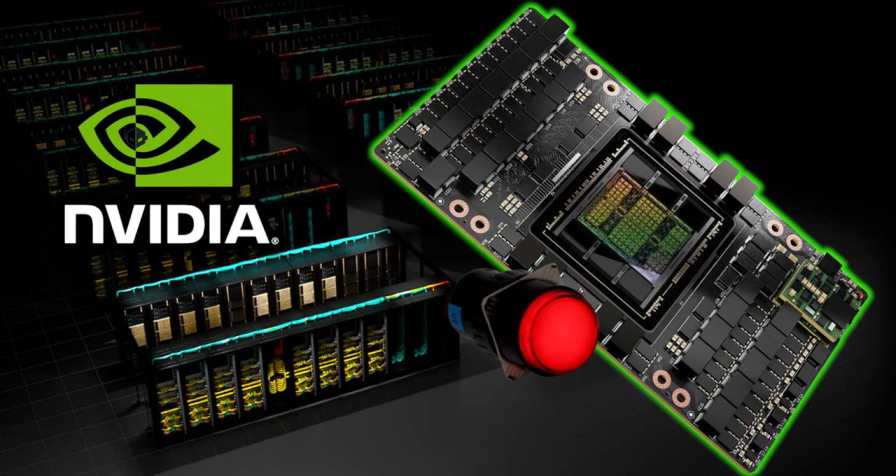U.S. secretly embeds trackers in AI chip shipments bound for China, reports
The U.S. is taking its AI chip export crackdown to a new level — hiding location trackers inside select shipments to catch them before they slip into China’s hands. Two people with direct knowledge of the tactic told Reuters the devices are being quietly placed in targeted loads of advanced chips at high risk of being illegally diverted.
The move adds a new layer to Washington’s effort to enforce export restrictions on China’s AI ambitions. These trackers, used only in shipments under investigation, are meant to follow chips that could end up in places the U.S. has blacklisted.
“U.S. authorities have secretly placed location tracking devices in targeted shipments of advanced chips they see as being at high risk of illegal diversion to China, according to two people with direct knowledge of the previously unreported law enforcement tactic,” Reuters reported.
From Kill Switch to Trackers: Washington’s Escalating AI Chip Crackdown
The report comes just three months after Washington announced plans to embed a “kill switch” in Nvidia’s AI chips to block unauthorized use in China. Back in May, a U.S. lawmaker said he would push for legislation requiring verification of where AI chips — including Nvidia’s — are installed after sale.

For U.S. authorities, the trackers aren’t just about deterrence. They’re a tool to build cases against people and companies that profit from breaking export laws. The approach isn’t new — law enforcement has been using tracking devices for decades on sensitive goods like aircraft parts — but sources say they’ve appeared more in the semiconductor supply chain in recent years.
Five people with ties to AI server distribution said they’re aware of the practice in shipments from companies like Dell and Super Micro, which include chips from Nvidia and AMD. According to those sources, the devices are usually hidden in packaging but, in some cases, tucked directly inside the servers.
It’s unclear exactly how often they’re used or when the operation began, but the U.S. started restricting advanced chip exports to China in 2022. In one 2024 case described by people in the supply chain, Dell servers with Nvidia chips were shipped with both visible trackers on the boxes and smaller devices hidden inside — including within the machines themselves. Some resellers have even shared images and videos of removing the trackers. The larger ones were about the size of a smartphone.
The Commerce Department’s Bureau of Industry and Security, Homeland Security Investigations, and the FBI are typically involved, sources said. Both law enforcement agencies declined to comment, and the Commerce Department didn’t respond. China’s foreign ministry said it was not aware of the matter.
Super Micro said it does not disclose its “security practices and policies in place to protect our worldwide operations, partners, and customers,” and declined to comment on U.S. actions. Dell said it is “not aware of a U.S. Government initiative to place trackers in its product shipments.” Nvidia declined to comment, and AMD did not respond.
The U.S., which dominates AI chip manufacturing, has sought to limit sales to China as part of a broader push to slow Beijing’s military modernization. It has also tightened restrictions on Russia in an effort to disrupt its war in Ukraine. Lawmakers have floated proposals to require all U.S.-made chips to include location verification features.
China has condemned the export curbs as an attempt to block its technological rise. Last month, its cyberspace regulator summoned Nvidia to raise concerns about potential “backdoors” in its chips — claims the company strongly denies.
The crackdown comes amid a broader investigation into global chip smuggling networks. In January, Reuters reported the U.S. had traced shipments to China routed through countries like Malaysia, Singapore, and the UAE, though it’s not clear if trackers were used in those cases.
Trackers have shown up in enforcement actions before. In a 1985 case, Hughes Aircraft shipped controlled equipment that U.S. Customs intercepted at a Houston airport and fitted with a tracking device before allowing it to continue to its destination. Sources say the devices today can be installed with or without a company’s knowledge, sometimes with a warrant to make the data easier to use in court.
Those involved in illegal chip transfers know the risk. Two China-based resellers told Reuters they routinely check diverted shipments for trackers. In a recent U.S. Department of Justice complaint involving two Chinese nationals accused of shipping millions of dollars’ worth of AI chips to China, an affidavit described one co-conspirator warning another to inspect Quanta H200 servers — which contain Nvidia chips — for hidden devices.
“Pay attention to see if there is a tracker on it; you must look for it carefully,” the message read, followed by an obscenity about the Trump administration. “Who knows what they will do?”
The latest clampdown also comes as U.S. President Donald Trump floated the idea of letting Nvidia sell a scaled-down version of its upcoming Blackwell chip in China, despite concerns in Washington that advanced AI hardware could boost Beijing’s military capabilities.



